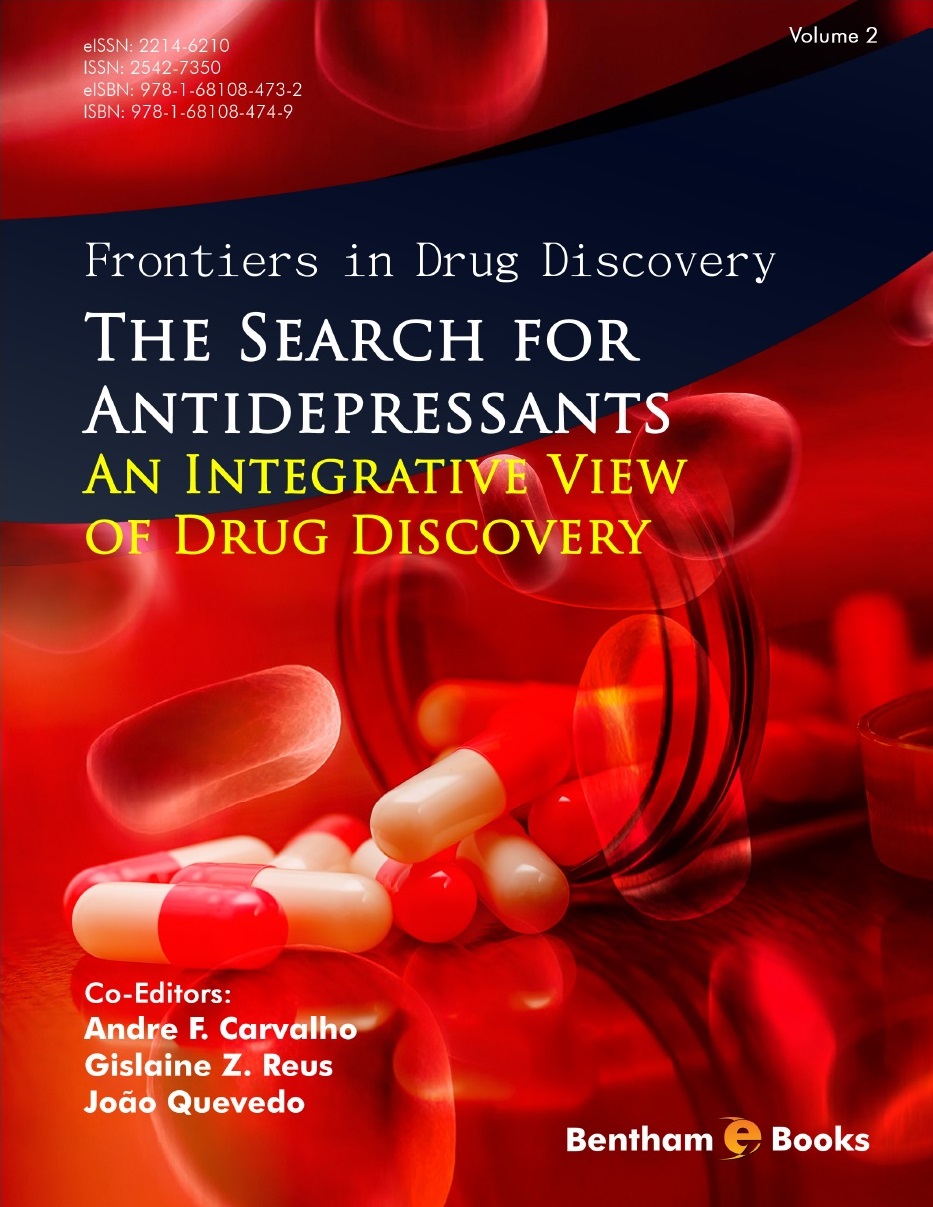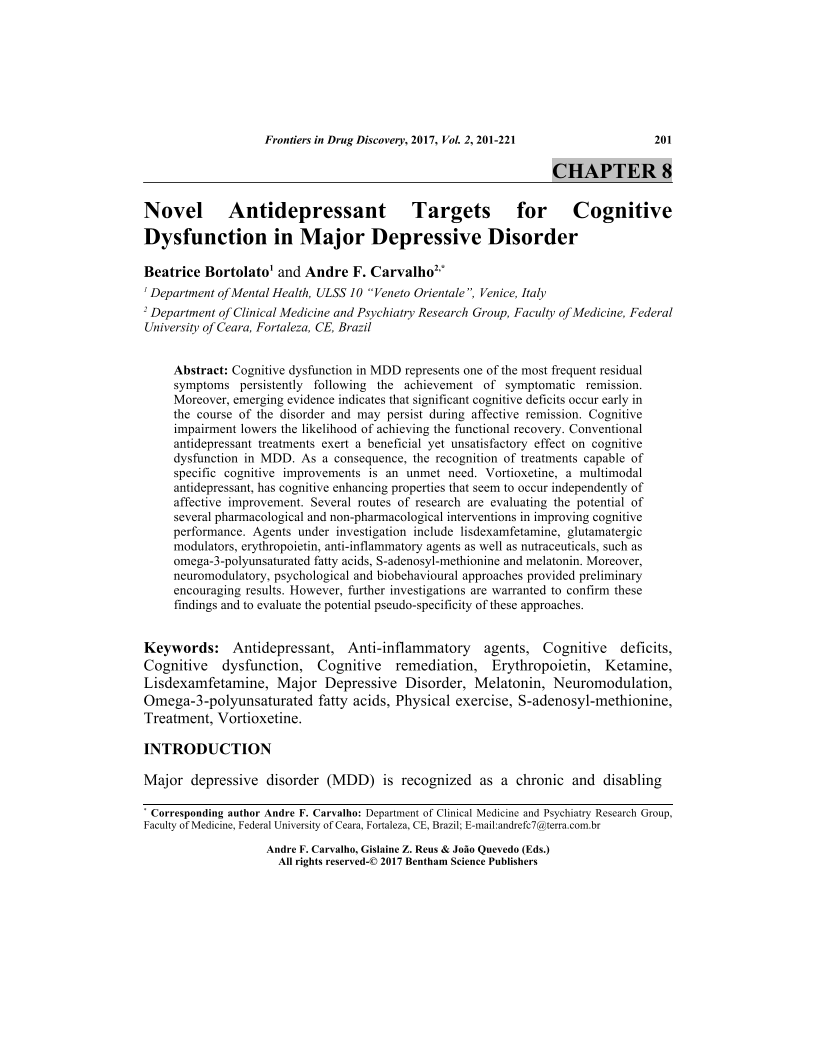Novel Antidepressant Targets for Cognitive Dysfunction in Major Depressive Disorder

- Authors: Beatrice Bortolato1, Andre F. Carvalho2
-
View Affiliations Hide Affiliations1 Department of Mental Health, ULSS 10 “Veneto Orientale”, Venice, Italy 2 Department of Clinical Medicine and Psychiatry Research Group, Faculty of Medicine, Federal University of Ceara, Fortaleza, CE, Brazil
- Source: The Search for Antidepressants - An Integrative View of Drug Discovery , pp 201-221
- Publication Date: July 2017
- Language: English
Novel Antidepressant Targets for Cognitive Dysfunction in Major Depressive Disorder, Page 1 of 1
< Previous page | Next page > /docserver/preview/fulltext/9781681084732/chapter-8-1.gif
Cognitive dysfunction in MDD represents one of the most frequent residual symptoms persistently following the achievement of symptomatic remission. Moreover, emerging evidence indicates that significant cognitive deficits occur early in the course of the disorder and may persist during affective remission. Cognitive impairment lowers the likelihood of achieving the functional recovery. Conventional antidepressant treatments exert a beneficial yet unsatisfactory effect on cognitive dysfunction in MDD. As a consequence, the recognition of treatments capable of specific cognitive improvements is an unmet need. Vortioxetine, a multimodal antidepressant, has cognitive enhancing properties that seem to occur independently of affective improvement. Several routes of research are evaluating the potential of several pharmacological and non-pharmacological interventions in improving cognitive performance. Agents under investigation include lisdexamfetamine, glutamatergic modulators, erythropoietin, anti-inflammatory agents as well as nutraceuticals, such as omega-3-polyunsaturated fatty acids, S-adenosyl-methionine and melatonin. Moreover, neuromodulatory, psychological and biobehavioural approaches provided preliminary encouraging results. However, further investigations are warranted to confirm these findings and to evaluate the potential pseudo-specificity of these approaches.
-
From This Site
/content/books/9781681084732.chapter-8dcterms_subject,pub_keyword-contentType:Journal -contentType:Figure -contentType:Table -contentType:SupplementaryData105

